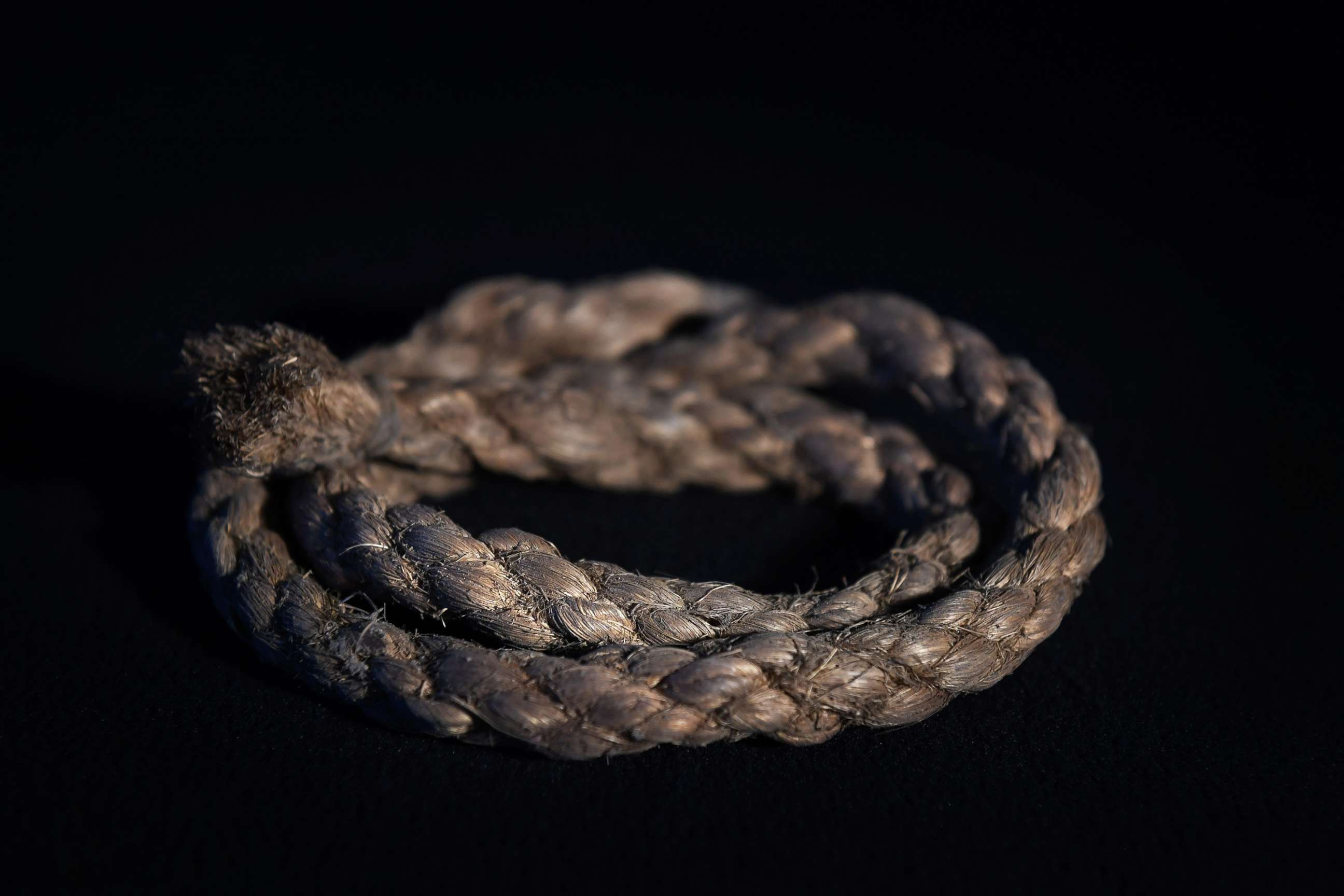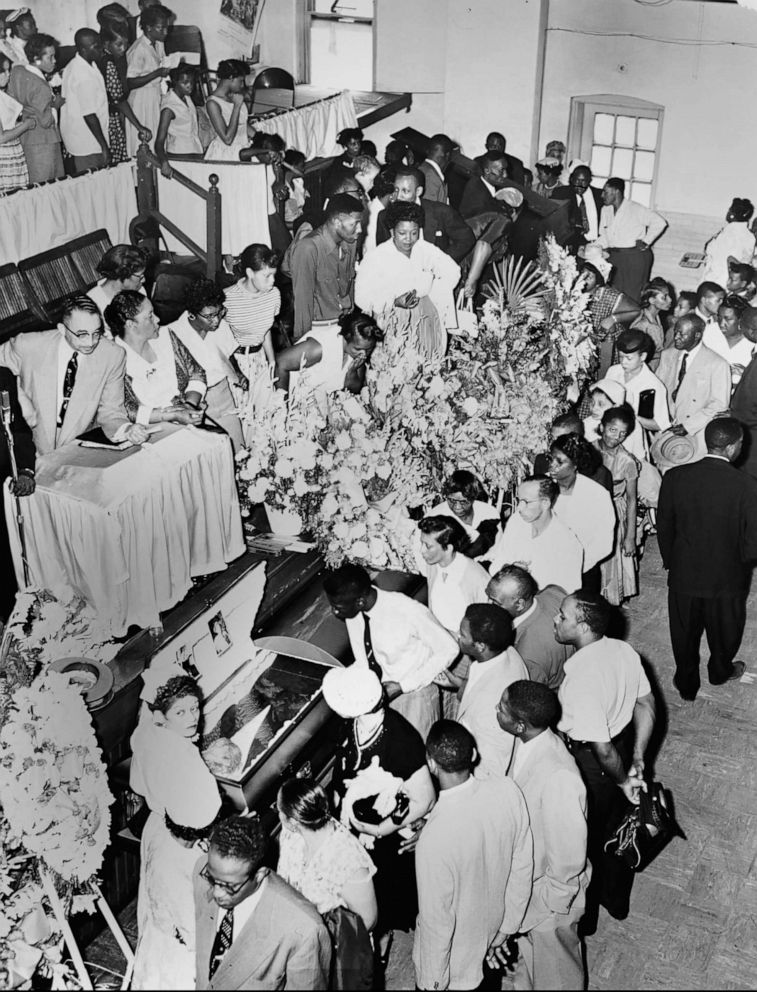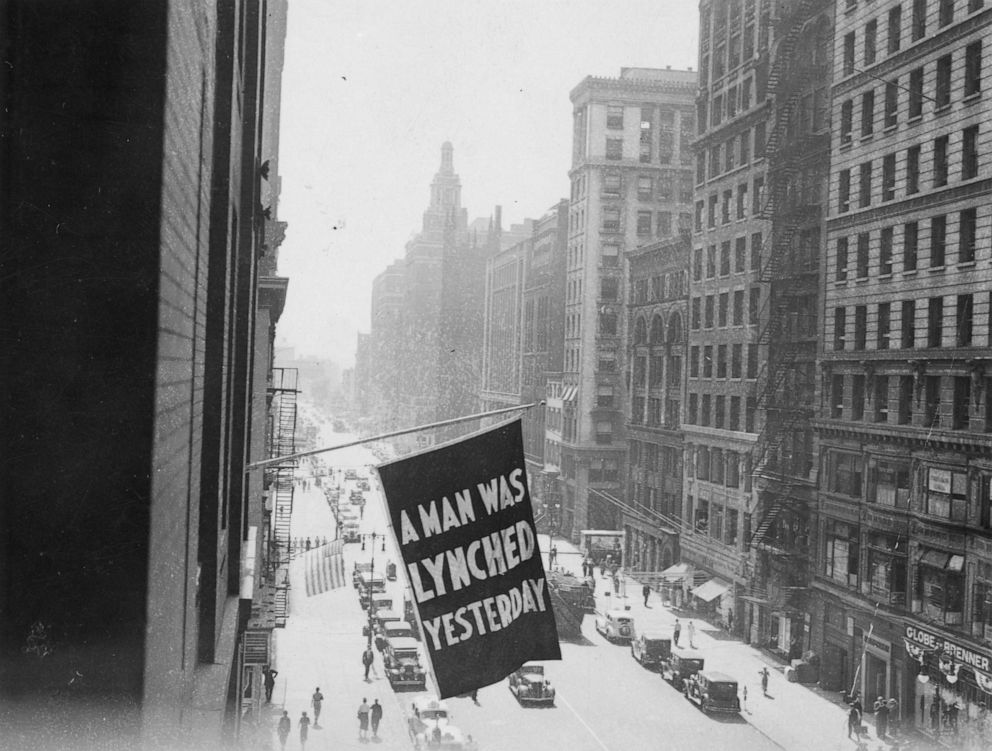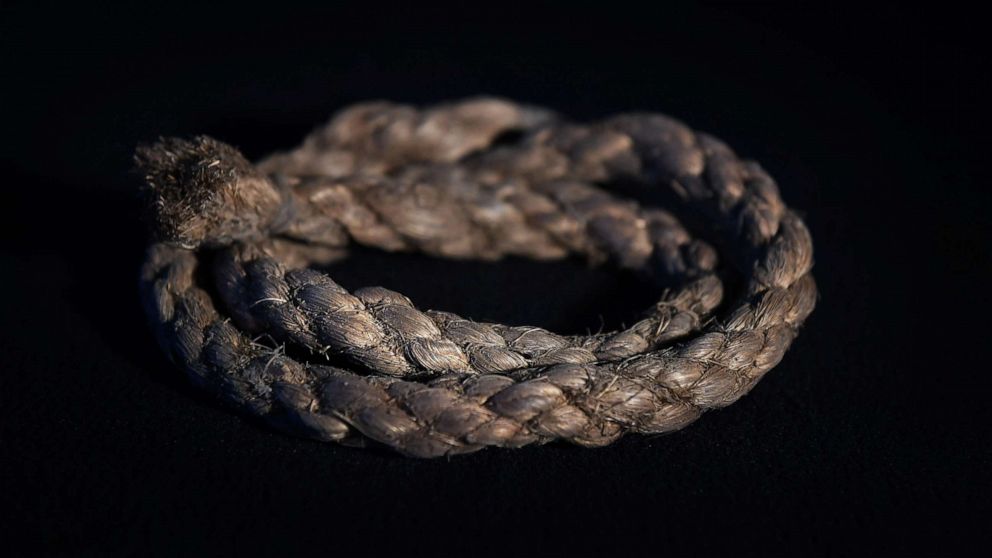Trump's reference to lynching resurrects painful chapter in US history: Experts
President Donald Trump's widely-condemned tweet comparing the Democrat-led impeachment inquiry to "a lynching" hit squarely on a painful chapter in America's complicated legacy on race amid concerns that his rhetoric appropriates that hurtful history for political gain.
"So some day, if a Democrat becomes President and the Republicans win the House, even by a tiny margin, they can impeach the President, without due process or fairness or any legal rights. All Republicans must remember what they are witnessing here - a lynching. But we will WIN!" Trump tweeted.
"[President Donald Trump] is getting his due process, lynching victims did not." Carol Anderson, a professor of African American history at Emory University told ABC News.
Anderson said she was completely "shocked and appalled" by his use of the word which prompted her own response to the president on Twitter.
"You weren't castrated & forced to eat your genitalia like Claude Neal. You weren't dragged behind a car, doused w/gasoline & set on fire like Cleo Wright. You weren't blow torched until your eyes popped out of your head like John Jones. That's lynching. You get due process," she tweeted.

The 'absolute terror' of lynching
Lynching is defined by Merriam Webster as "to put to death (as by hanging) by mob action without legal approval or permission."
There were at least 4,743 lynchings in the United States between 1882 and 1968 -- almost three-quarters of the victims were black, according to the NAACP. However, Latinos, Jewish and Italian Americans and other immigrant groups were also lynched during periods of racial tension as minorities moved into traditionally white communities of north-Western European ancestry.
Anderson noted that the majority of lynchings happened during Reconstruction -- just after slaves were freed -- through the rise of the Jim Crow era laws which codified racial segregation. The acts, which even continued through the civil rights era into the modern age have been used as a way to terrorize black people "back into their place" now that they were no longer enslaved, Anderson said.
"How do you put them back into a neo-slavery place? The Jim Crow laws were one mechanism, outright massive domestic terror was the other mechanism," Anderson said.
Lynchings were often public outings and were announced in churches. White families would pack a picnic lunch and come out to watch the torture, beatings, burning, hanging, mutilation and eventual murder of helpless and innocent individuals.
In one case, for example in 1918, a young black woman named Mary Turner, who was eight months pregnant, was stripped naked, turned upside down, doused with gasoline and set on fire. Her unborn child was removed from her stomach and stomped to death by an angry white mob--all because Turner was outraged at the murder of her husband by that same mob after he was one of many falsely accused of killing a white plantation owner.
Emmett Till was 14-years-old when he was kidnapped, brutally beaten and killed in 1955, hours after he was falsely accused of whistling at a white woman. His body was found mutilated days later in a river in Mississippi. An all-white jury later acquitted two white men of murder charges.

Lynching in the eyes of the law
While murder in and of itself was not legal, the issue of lynching was complicated by the fact that the law did not consider blacks deserving of equal legal protections and thus authorities did not work to protect minorities targeted by racial violence, Anderson said.
"People should begin to think about the kind of terror that factions throughout a community where you can have that kind of lawlessness," Anderson said.
Over more than a century, Congress has tried with more than 200 failed bills to make lynching a federal crime.
In December 2018, the Senate unanimously passed legislation that would finally make lynching a federal crime. Authored by 2020 presidential candidates New Jersey Sen. Cory Booker and California Sen. Kamala Harris and South Carolina Sen. Tim Scott, the only African American Republican in that chamber, the Justice for Lynching Act characterized lynching as, "the ultimate expression of racism in the United States," and classifies it as a federal hate crime.
"Today is an emotional and historic day," Booker said after its Senate passage. "For over a century, members of Congress have attempted to pass some version of a bill that would recognize lynching for what it is: a bias-motivated act of terror. And for more than a century, and more than 200 attempts, this body has failed. Today, we have righted that wrong and taken corrective action that recognizes this stain on our country's history."
The House is slated to next take up the measure.
Rep. Bobby Rush, founder of the Black Panther Party's Illinois chapter, told ABC News that his great-uncle was lynched.
"The pain and horror of that is right beneath the surface," Rush said. "It's not something you can ever walk away from."
Rush has also introduced an anti-lynching bill in the House of Representatives, the Emmett Till Antilynching Act, which would make lynching a federal crime subject to a prison term, a fine, or both. Since June, his bill has been in markup in the Democratic-controlled House Judiciary committee.
In the meantime, lynching is still not considered a federal crime as neither bills have been signed into law.
How the word has been used politically in the past
The danger in politicizing and using the word lynching out of context is that it begins to lose its value and its dark history begins to erode according to political experts.

Trump isn't the first person to politicize the term lynching.
Then-Supreme Court nominee Clarence Thomas during his Senate confirmation hearing where he was confronted by Anita Hill on allegations of sexual harassment called the proceedings "a high-tech lynching for uppity blacks who in any way deign to think for themselves, to do for themselves, to have different ideas, and it is a message that unless you kowtow to an old order, this is what will happen to you. You will be lynched, destroyed, caricatured by a committee of the U.S. -- U.S. Senate, rather than hung from a tree."
Former Vice President and 2020 presidential candidate Joe Biden in October 1998 said that the impeachment of President Bill Clinton could be seen as "partisan lynching."
"Even if the president should be impeached, history is going to question whether or not this was just a partisan lynching or whether or not it was something that in fact met the standard, the very high bar, that was set by the founders as to what constituted an impeachable offense," Biden said in an appearance on CNN.
Biden issued an apology tweeting, "This wasn't the right word to use and I'm sorry about that. Trump on the other hand chose his words deliberately today in his use of the word lynching and continues to stoke racial divides in this country daily."
In September, Texas Republican Sen. Ted Cruz referred to Democratic outcry about Trump's conversation with Ukraine President Volodymyr Zelensky -- which sparked the impeachment inquiry -- as a "lynch mob."
Following his Tuesday morning tweet, there was some bipartisan outcry.
The House's top Republican, Rep. Kevin McCarthy, R-Calif., a frequent Trump defender, said he would not have used such language.
"I don't agree with that language," he said to reporters. "Pretty simple."
GOP Rep. Adam Kinzinger of Illinois said the word referred to a "painful scourge in our history" and called on Trump to retract his statement.
"We can all disagree on the process, and argue merits. But never should we use terms like "lynching" here. The painful scourge in our history has no comparison to politics, and @realDonaldTrump should retract this immediately. May God help us to return to a better way," Kinzinger tweeted.
Rush harshly responding via Twitter said, "Do you know how many people who look like me have been lynched, since the inception of this country, by people who look like you."
He added, "What the hell is wrong with you?"
However, there were some lawmakers that came to the president's defense, agreeing with his use and characterization of the word.
GOP Sen. Lindsey Graham of South Carolina said the president's use of the word in a tweet was "pretty well accurate" in describing what he feels Democrats in Congress are doing to the president by launching an impeachment probe.
"This is a lynching in every sense," Graham said, defending the president. "This is un-American."
He added, "I think lynching can be seen as somebody taking the law into their own hands and out to get somebody for no good reason."
"What does lynching mean? When a mob grabs you, they don't give you a chance to defend yourself. They don't tell you what happened to you. They just destroy you," Graham went on to say.
"We can not allow someone who sits in the highest office, such as Trump, to use this word so casually and cavalierly without to regurgitation and repudiation," Rush said.
Imani Perry, a professor of race and African American culture at Princeton University, said that the comparison of an impeachment proceedings and lynching is "absolutely absurd" and that Trump has been "given the grace of the most deliberate and respectful of processes."
"So, the issue for me goes beyond his offensively flippant reference to one of the most shameful aspects of our history," Perry said in a statement to ABC News. "It speaks to his complete misunderstanding of what it means to actually confront injustice and unfairness as he sits on a self involved perch that is miles away from the lives of Americans of all sorts."




